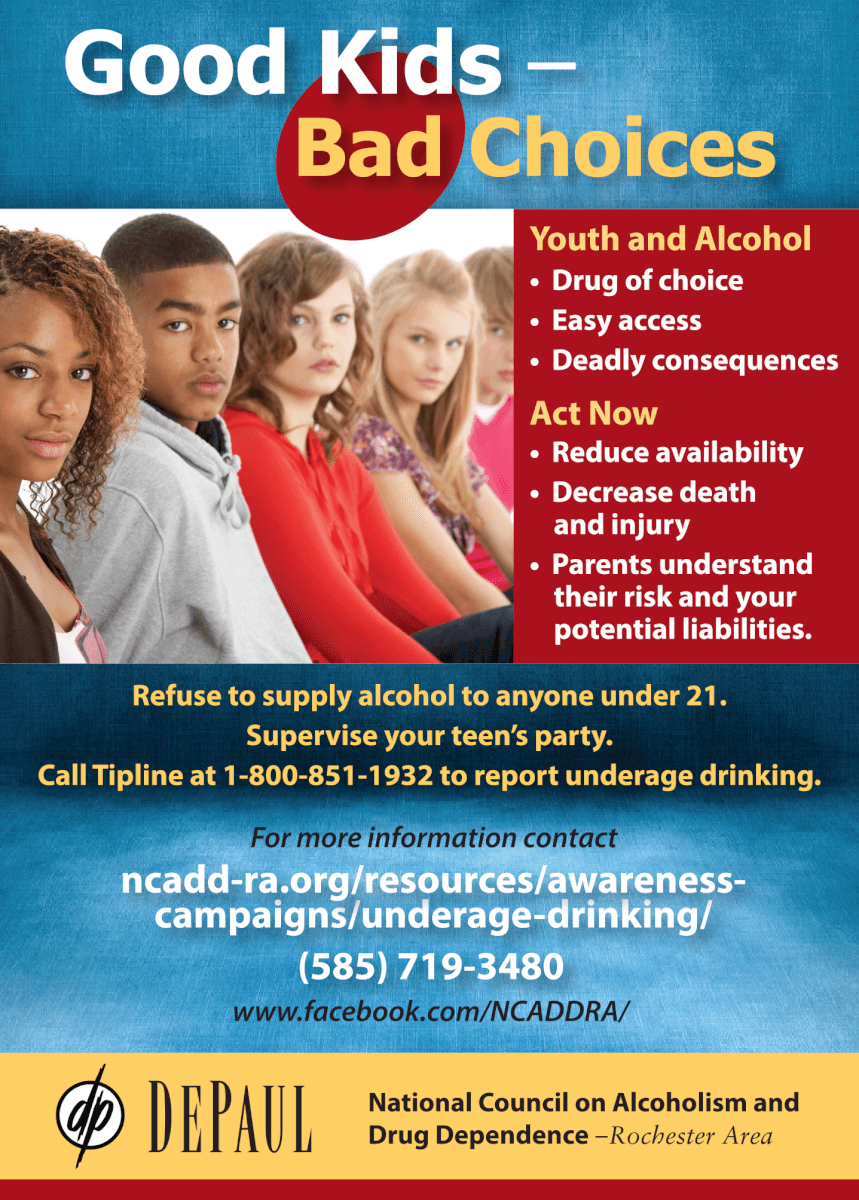Talk to Your Children About the Risks of Underage Drinking at Every Age
By: Jennifer Faringer, MS Ed, CPP-G, Director of DePaul’s National Council on Alcoholism and Drug Dependence-Rochester Area
As summer winds down and a new school year approaches, consider providing clear, consistent rules and expectations for your children and setting the stage for ongoing open communication about the risks of underage drinking. This is by far the single most effective way to keep your children safe from the risks of underage drinking. Sharing a no-use message is crucial, as parents are the single most important influence in a child’s life. Remember children benefit from hear these messages frequently, with many little talks rather than one “big talk.”

When is the best time to talk to your children about the risks of alcohol? There are messages you can share at every age. Even as early as preschool, your child has very likely already been exposed to alcohol, whether online, on television or maybe in real life. During these early years, children are anxious to know the rules. They are forming attitudes as they watch family members interact around them. Consider the unspoken messages that you may be sending.
During the elementary school years, children are becoming more interested in the world around them, often outside family and home. This is an especially important time to share with your children the risks and consequences of drinking. During their middle school years, children are beginning to test the waters, explore their independence, and starting to question authority figures. Yet at the same time, they understand the importance of rules and do appreciate limits. This is another opportunity to share not only the rules, but also the consequences if rules are broken.
During high school, your children may know other young people who use alcohol or other drugs. This is an especially critical time to keep the lines of conversation open, giving your children the time and space to express their concerns and thoughts about alcohol use. Continue to talk to them about the risks associated with alcohol and other drug use. Share how these risks are connected to their safety and well-being whether that be through associated violence, driving under the influence, or unwanted sex. The wrong message is sent if we talk about underage use as an expected “rite of passage.”
What are other ways you can connect with your children about the risks of drinking?
- Have frequent conversations with them about their areas of interest whether sports, music or art. Show up at their events as often as possible. If you are unable to attend an event let them know you are interested in what they experienced.
- Spend time together on any healthy family activity of interest. Parents often play with their children when they’re young. Continue enjoying a variety of forms of fun and recreation together as a family together no matter what age your children are. Perhaps with a family game night or a hike.
- Consider creating together. This could include cooking together or creating an art project, for example.
- From an early age, start reading to your children. This not only encourages a future interest in reading but creates opportunities for bonding!
- Have an open-door policy at home to allow conversation around difficult situations at school with friends or others. Strategize with them ways to handle situations that are challenging.
- As often as possible, share a meal together. This also sets the stage for a conversation.
Beyond high school, stay connected and remind your now young adult about the inherent dangers of binge drinking, alcohol poisoning, and driving while intoxicated or high. It’s never too early or too late to have the conversation! You can be the difference in their lives and the choices they make!
For further information and resources, visit the NCADD-RA’s website at www.ncadd-ra.org or the Facebook page at http://www.facebook.com/NCADDRA/.